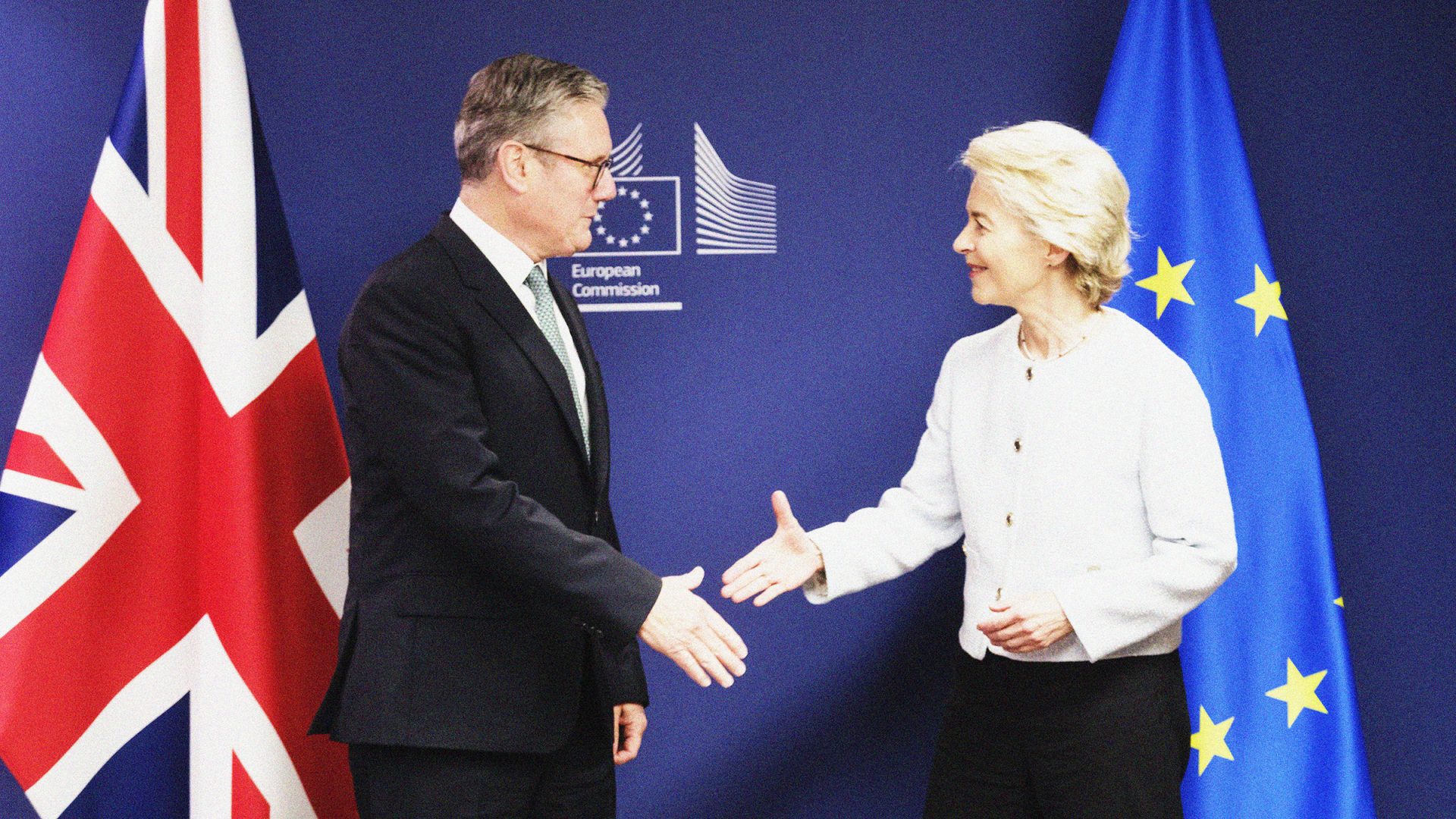It’s time to face facts. If Britain is serious about economic growth, the answer lies not in a prayer to the bond market, but in a strategic reset with our largest trading partner.
On 19 May, Keir Starmer will meet Ursula von der Leyen, president of the European Commission, in what could prove to be the most consequential UK-EU summit since Brexit. But while the diplomatic murmurs might be warmer, the policy agenda remains perilously thin. Perhaps for understandable reasons, ministers published no roadmap, no Green Paper, no clear statement of intent. And that’s left Britain and Brussels in the dark.
That’s a missed opportunity – because the economic and geopolitical case for a new UK-EU pact is overwhelming.
Start with growth. The government has pledged to deliver the highest sustained growth in the G7. Business investment remains weak. Productivity lags. Crucially, we’re held back by poor goods exports. Since 2019, the UK’s goods exports have risen by a tiny 0.3% a year, compared to an OECD average of 4.2%. Given that 41% of our goods exports still go to the EU – more than to the US, India and the entire Indo-Pacific region combined – I think we know where to look for improvement.
Nobody is proposing a return to the Single Market. The red lines are clear. But there is a broad and pragmatic policy space between rupture and reintegration. That would involve cutting customs friction, streamlining border processes, advancing regulatory cooperation, and striking a long-overdue veterinary deal. These are not ideological matters. They are matters of economic necessity.
To help focus minds, the business and trade committee published a draft report last month setting out twenty recommendations on how to reset UK-EU relations. This week we publish the results of our consultation with more than 70 respondents, including businesses, industry bodies, and civic organisations.
The results are striking. They show 95% support for measures to reduce border bureaucracy and more than 90% support for closer defence and infrastructure coordination. And in areas like digital regulation, financial services and research collaboration, up to 96% of respondents agreed that the UK should deepen its cooperation with the EU.
Read more: Ipsos polls: Brits want a reset with Europe
Even on the sensitive subject of regulation, the support for practical alignment was striking. More than four in five respondents endorsed the idea of a ten-year regulatory roadmap for key sectors, to maximise alignment with the EU. That would allow firms to plan, invest, and compete with clarity.
Consider the cost of inaction. The absence of a Sanitary and Phytosanitary (SPS) agreement, for example, has left agri-food exporters mired in red tape. Aston University estimates that such an SPS deal could boost exports of food and plants by over 22%.
But this isn’t just about trade. The world has changed since 2020. Russia’s war in Ukraine, the weaponisation of supply chains by China, and the return of tariff-heavy protectionism in the United States all underscore one thing: Britain needs strategic depth.
That means pressing for a formal UK-EU Security and Defence Pact, opening the door to the EU’s proposed €150bn SAFE defence fund. It means closer cooperation on critical infrastructure, including on offshore wind, subsea cables, and energy interconnectors. And it means ending the inefficiencies that have plagued our electricity market since we left the EU’s trading platform – an exit that National Grid estimates is costing British consumers up to €350m a year.
The time for timidity is over. The Brussels dividend is real. It won’t be delivered by slogans or sentiment, but by serious policymaking rooted in shared interest and mutual benefit.
This month’s summit offers a rare chance to re-anchor Britain’s economic and security strategy where it belongs: in hard-headed, clear-eyed cooperation with our European neighbours. The government should seize it.










